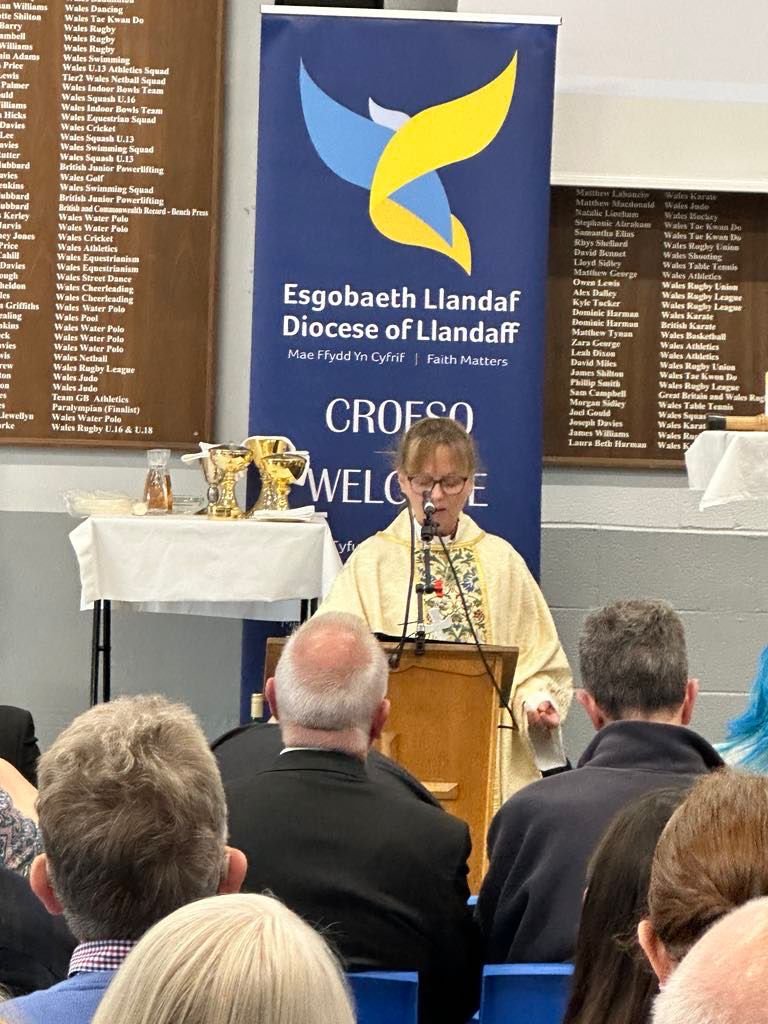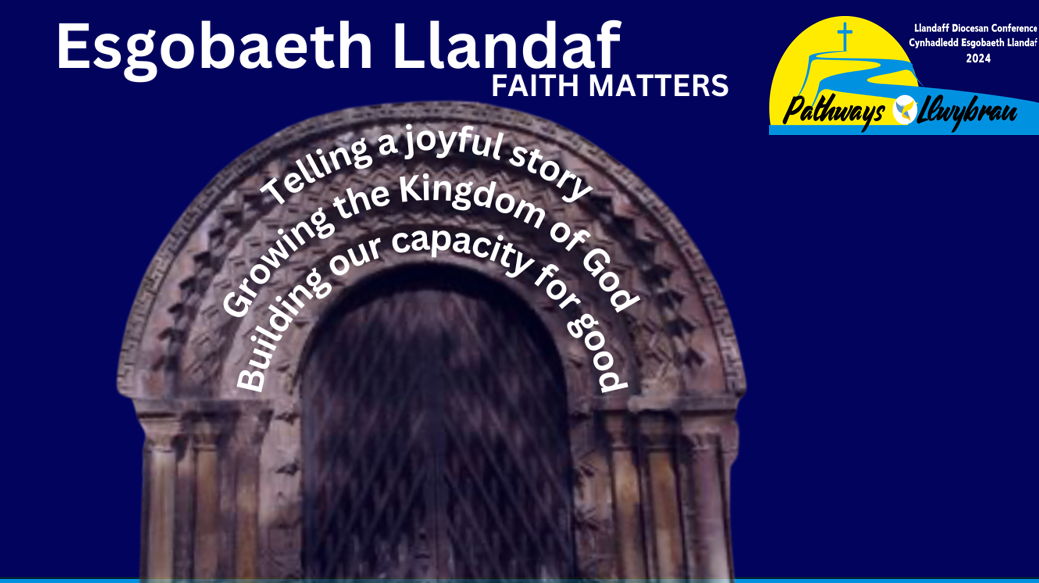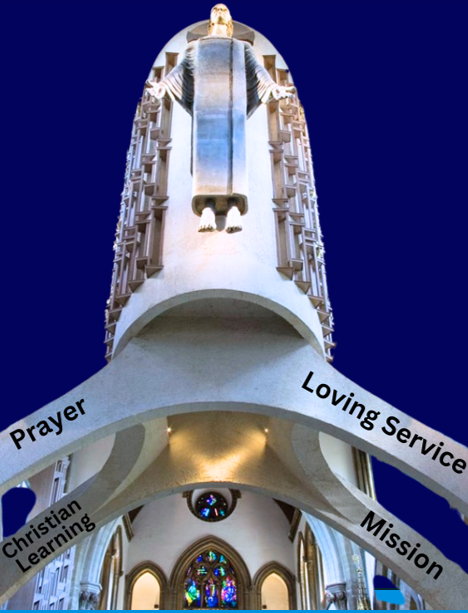Bishop Mary's Address to Diocesan Conference

Llefara O Dduw, canys mae dy weision yn gwrando. Amen. Those words of prayer that I have just spoken, the prayer of the boy Samuel, that he was taught by the priest. Eli says something important. God speaks to us, our task is to hear this and to respond. That is what vocation is. It is our calling as people are face to listen to the voice of God and to act, upon that calling.

The invitation of God is like a doorway offering possibility, hope and the way of life as an invitation to be shaped as God’s people. The collect in our Eucharist speaks of this, of our call to live lives that are distinctive because of our faith. This calls us to a way of life that is generous, humble and marked by a desire to learn. One of the biggest challenges for the Church in our age is for us to find ways to let go of cynicism and the desire to tear others down and instead to find a gentleness and grace that enables us to be a people who open the way for others, who are invitational and show fresh possibilities especially for those who feel that they have few options, and limited access to the love and security that can free them to live joyful, hopeful lives.
Our reading from the Prophet Jeremiah offers us a way forward. The prophet reminds us that God knows us completely, and God still calls us. God says to Jeremiah do not say, “I am only young. - I am just a child”. Jeremiah reminds us we are not sent by God in our own strength, but that God will give us everything we need. God says to Jeremiah, “I am with you. I will give you the words to say”. We are not called to be the Messiah, we are called to be signposts to the saviour - to show others Godly forgiveness, love, grace and hope. I see that happening in so many places in this Diocese. We have heard about the extraordinary way this is lived out in prison ministry. The same excellent work is being done daily in our hospitals and care homes, in schools, colleges, universities and places of learning. By our Mothers’ Union and by other diocesan, deanery and locally based groups. So many of our churches at the most local level are involved in food banks and food pantries, school uniform exchanges, parent and baby support programmes, work with the elderly and engaged work with the homeless, work with asylum seekers and refugees, campaigns, shelters, and loving service expressed in so many different ways.
One of the challenging things about our current situation is that with the world torn by so many conflicts and so much need, it is easy to feel overwhelmed by the tasks set before us. How can we, who feel small, and who struggle to find resources, make a difference?
The words of the Gospel reading resonate with us, we sympathise with the crowds who gathered around Jesus who were harassed and helpless, overwhelmed with great need.
The good news of the Gospel is that we are not like sheep without a shepherd. We have a shepherd, we have one who leads and guides us.

The last words of the gospel that we have just heard tell us exactly what we need to be doing: Jesus says to the disciples, the harvest is plentiful – there is an enormous amount of work to be done – but the labourers are few ..‘
Therefore, ask God to send out labourers’ – in other words, PRAY.
Jesus makes it clear where to start, our work begins with prayer, with asking God for help with the task that God has given. Prayer and worship are right at the heart of what it is to be God’s people. Attending to the heartbeat of prayer in our Diocese is our primary work in every Christian community. This is done so faithfully in many different ways where-ever Christian ministry is exercised whether it is done loudly and extravagantly or simply in silence, in the beauty of choirs who sing in careful harmony or in exuberant prayer and praise with worship bands. In poetic, carefully crafted words or heartfelt outpourings of peoples’ feelings in many different ways. In Messy church or in a high-mass, in prayers in someone’s garden or kitchen - what matters is that prayer is real and that it involves listening to God as much as speaking.
The variety of prayer in our Diocese can only be a gift to us. And I rejoice in the many ways in which people are looking for resource and support from some of the ancient communities of prayer who can teach us how to deepen our lives of prayer and worship.
We have spent time at this conference looking at the other important aspects of our lives as baptised Christians. Our learning, our acts of loving service and our outreach like our lives of prayer. These are so varied and rich and they are a source of great encouragement.
If you walk around the Majestas in the Cathedral, you will notice that in addition to the huge pillars below the person of Christ, there are also many ledges all around him. Perched on these are angels and Saints in gold these are like little signposts of hope.
One of the great joys for me as Bishop, is to witness the incredible company of Saints and Angels amongst the living as well as the celebrated departed in this Diocese.It is true that there are many situations of need and which cause anxiety and stress. But I have been so heartened and encouraged to discover that each each and every time, needs have arisen it has been my experience that faithful people have stepped forward to offer gentle advice, generous offers of support and sacrificial acts of solidarity. It is particularly humbling and instructive for me to have received help from some unexpected sources.
It is my firm belief that it is the call to each one of us to be like those figures around the Majestas – To seek to be bright signs of hope and encouragement for others. When we do this, and live this out courageously, we witness truthfully and faithfully to the God who has much to say, to our world and to creation, words of hope and reconciliation that can bring life, healing and peace. So, Speak to us God, and help us to listen. Amen.